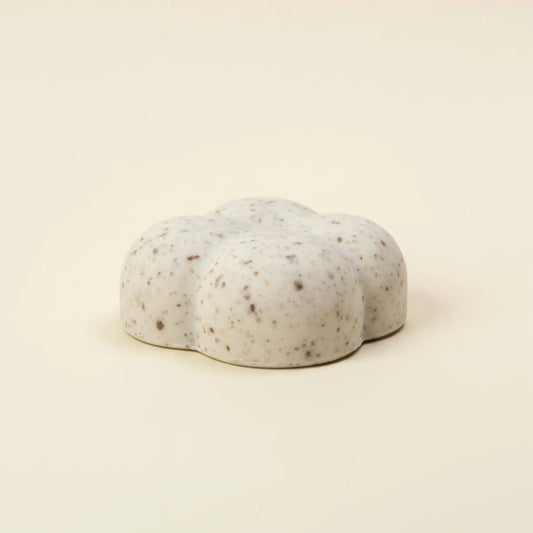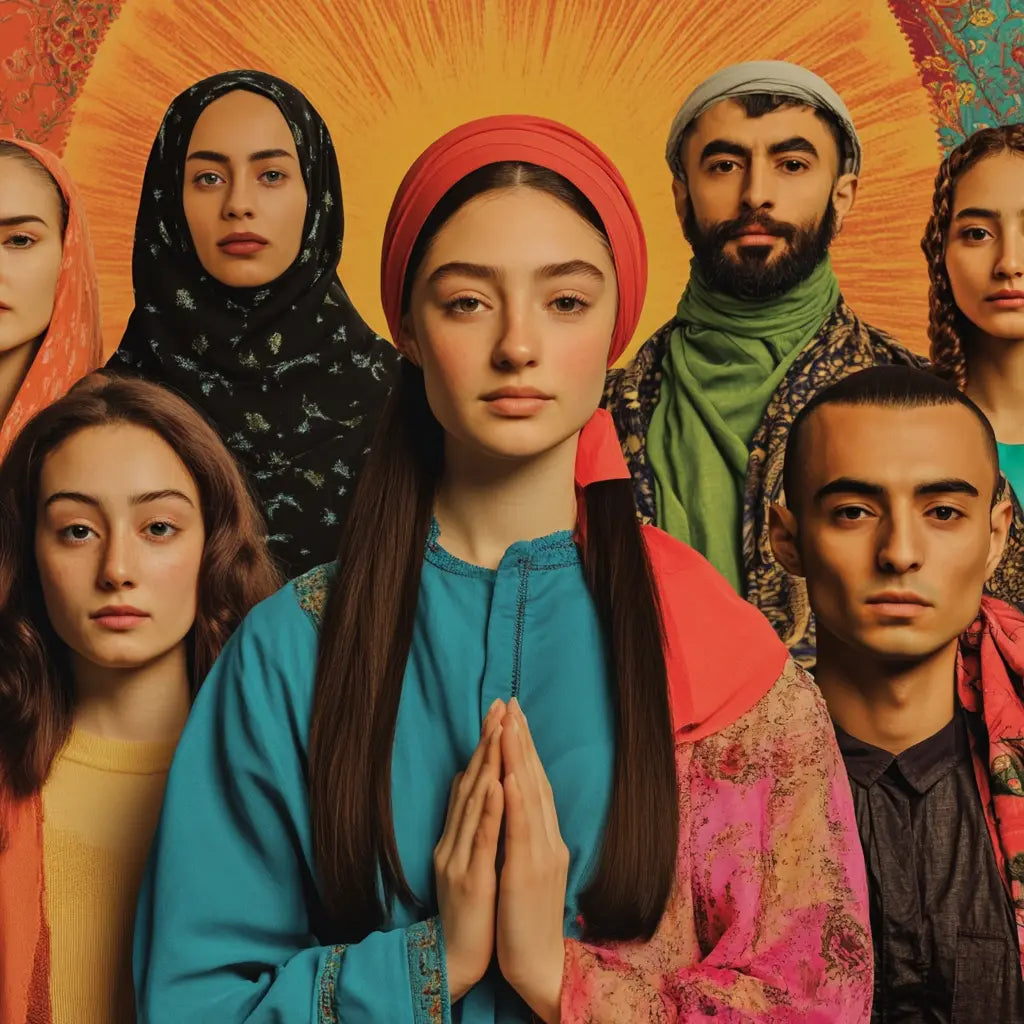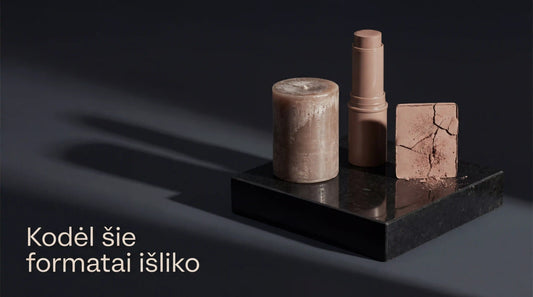From modesty to devotion, hair practices are part of cultural heritage and personal faith. In both Abrahamic and Eastern religions, hair can symbolize purity, commitment, and respect for the divine.
Hair practices are not only symbolic, but also diverse. Did you know that about 40% of women around the world cover their hair as part of religious or cultural traditions? Let's take a look at how different religious traditions treat hair and why it's so important.
Hair in Christianity, Judaism, and Islam
Christianity: Hair as a symbol of faith
In Christianity, hair has often been used to symbolize spiritual ideas. You may have heard the biblical story of Samson—his long hair was the source of his strength. This idea that hair has power and significance is much more than just a story.
- Hair as a Symbol of Modesty and Devotion : In some branches of Christianity, women cover their hair as a symbol of modesty. This practice stems from the Bible's teaching that women should cover their heads when praying. First Corinthians 11:15 states that a woman's hair is her glory, and covering it during worship is a sign of respect.

- Monastic tonsure : Monks in certain Christian traditions, such as Catholicism, used to shave a portion of their heads called the "tonsura." This hairstyle was a symbol of their dedication to God. Tonsure originated in the 7th century and was particularly popular in medieval Europe. Although not as common today, tonsure was once a very public statement of religious devotion.
Christianity suggests that hair can be associated with humility, strength, and a connection to faith—it all depends on how it is presented and cared for.
Judaism: Hair and Sacred Tradition
Jewish hair traditions are filled with deep meaning and cultural identity. From the way women cover their hair to the distinctive locks worn by some men, hair plays an important role in Jewish life.
- Hair Covering for Married Women : In Orthodox Judaism, married women cover their hair with headscarves, wigs, or hats. This practice is not just about modesty—it is about respecting the sacred bond of marriage. By covering their hair, women mark the distinction between their private and public lives. Did you know that some Jewish women wear wigs made of real hair that can cost up to $3,000? This shows the value they place on maintaining modesty along with beauty.

- Sideburns for Men : Have you noticed the sideburns that some Jewish men, especially from Hasidic communities, wear? These sideburns, called “sideburns,” grow in accordance with the biblical commandment “not to cut the sides of the head.” It is a tradition that is associated with respect for God’s commandments and a visual reminder of faith. Interestingly, sideburn growing practices vary: some communities curl them, others keep them straight, thus demonstrating the diversity of Jewish customs.

These practices show that in Judaism, hair is not just about appearance—it is deeply connected to religious law, identity, and respect for tradition.
Islam: Hair Practices Based on Purity and Modesty
In Islam, hair care and covering practices are of great importance for both men and women. They are part of personal hygiene, modesty, and spiritual discipline.
- Hair Covering for Women : You’ve probably heard of the hijab—the headscarf worn by many Muslim women. The hijab is more than just a piece of cloth; it’s a symbol of modesty, privacy, and sometimes even empowerment. It’s a personal choice, and for many women, it’s a reflection of their devotion to God. According to the Pew Research Center, about 83% of Muslims in the Middle East and North Africa region wear a headscarf. The practice varies widely around the world, reflecting both cultural influences and personal beliefs.

- Grooming Practices for Men and Women : Hair care is an important part of cleanliness in Islam. The Prophet Muhammad encouraged both men and women to keep their hair clean and tidy. During the Hajj pilgrimage, it is customary for men to shave their heads as a sign of spiritual renewal and humility. Did you know that more than 2 million male pilgrims shave their heads each year during the Hajj? This act of shaving signifies a new beginning and spiritual purification.

Islamic hair practices are not just rules—they are part of a life based on purity, respect, and connection to faith.
Hair in Hinduism and Buddhism
Hinduism: Hair as a Spiritual Offering
In Hinduism, hair is often considered a symbol of strength, purity, and sacrifice. It is not uncommon to see people offering their hair to the gods.
- Tonsura: The ritual of shaving the head : Tonsura, or shaving the head, is a common practice in Hinduism. It is performed as an offering to the gods, especially at temples like Tirupati in India. The Tirupati temple is one of the largest recipients of human hair in the world, collecting over 500 tons of hair each year. People shave their heads to show gratitude, fulfill vows, or receive blessings. It is an act of humility and renunciation of ego.

- Hair Donation at Sacred Places : Hair donation is a gesture of renunciation to a higher power. It symbolizes renunciation of vanity and material attachment. The hair collected at temples is often sold for wigs and extensions, and the millions of dollars earned are used for charitable purposes. This practice shows how deeply hair is connected to ideas of spirituality and devotion in Hinduism.

For many Hindus, hair is more than a part of the body—it is a way to connect with the divine and show devotion.
Buddhism: Shaving the head as a symbol of renunciation
In Buddhism, shaving the head is a powerful symbol of renunciation in pursuit of simplicity and a spiritual life.
- Monks and nuns shave their heads : When someone becomes a monk or nun in Buddhism, one of the first steps is to shave their heads. This act symbolizes renunciation—renouncing worldly attachments and moving toward enlightenment. It is a reminder to focus on spiritual growth, not on outward appearance. Interestingly, in Thailand, about 300,000 men become temporary monks each year, shaving their heads as part of their spiritual journey.

- Simplicity and Purity : Shaving the head also signifies purity and humility. It is a way for monks and nuns to remove obstacles to their spiritual path. By giving up their hair, they demonstrate their commitment to living a simple, devoted life. The tradition is so important that even Buddhist children sometimes shave their heads to symbolize their connection to spiritual values.
In Buddhism, hair is not something to be styled or displayed—it is something to be given up for a higher purpose.
Myth debunking and interesting facts
Let's debunk some myths and discover interesting facts about religious hair practices.
-
Myth: All Muslim women must wear the hijab.
- Fact: Wearing the hijab is a personal choice. While modesty is encouraged, not all Muslim women wear the hijab, and practices vary widely. For example, in Turkey, only about 45% of women wear the headscarf, showing how diverse this practice is.
-
Myth: Monks shave their heads because they don't like hair.
- Fact: It's not because they don't like their hair. Shaving their heads in Buddhism is a symbolic act of renunciation and a focus on spirituality. In fact, many monks shave their heads up to twice a month to maintain their commitment.
-
Myth: Jewish women are forced to cover their hair
- Fact: Covering one’s hair in Judaism is a choice that married women make to honor their faith and the sanctity of marriage. It is a personal decision and an important part of their cultural identity. Interestingly, some women choose to wear colorful headscarves or even stylish wigs called “brows” to express modesty and individuality.
-
Fact: Samson had super strength because of his hair
- According to the Bible, Samson had strength because of his uncut hair. This story highlights the symbolism of hair as a source of power and identity. His hair was never cut until he was betrayed, showing how hair can represent a covenant with God.
-
Fact: Tonsure is still practiced today
- Many Hindus continue to practice the tonsure as an offering at temples. It is a tradition that has been passed down from generation to generation and remains an important part of Hindu rituals. The hair collected is often sold, generating over $300 million a year, which is used to maintain temples and for charitable purposes.

Practical tips for respecting religious hair practices
- Learn before you ask : If you're curious about someone's hair care or grooming practices, do a little research first. This shows respect and helps avoid awkward questions.
- Respect personal space : Avoid touching or commenting on someone's hair unless you know the person well and have their permission. Hair can be very personal, especially in a religious context.
- Understand the meaning : Remember that for many people, hair is more than just hair. It is a symbol of their faith, identity, and values. Treat it with respect.
Frequently Asked Questions About Religious Hair Practices
-
Why do some religions require covering hair?
- Covering your hair is often a sign of modesty, respect, and privacy. It is a way to honor your faith and stay connected to spiritual values.
-
Do all Buddhist monks shave their heads?
- Yes, most monks and nuns shave their heads as a symbol of renunciation. It is an important part of their spiritual path.
-
Is it necessary for Jewish men to grow sideburns?
- Not all Jewish men grow sideburns. This practice is mostly practiced in Orthodox and Hasidic communities as a sign of adherence to the law.
-
Can Hindu women shave their heads as part of a ritual?
- Yes, in some Hindu traditions, women may shave their heads as an act of devotion or to fulfill a vow. This is less common, but is still practiced in certain contexts.
-
Why do some Christian women cover their hair?
- In some Christian denominations, women cover their hair during worship as a sign of modesty and respect for the teachings of the Bible.

Conclusion: The meaning of hair
Hair practices across religions are as diverse as the people who practice them. Whether it’s covering, shaving, or letting it grow, each practice has deep spiritual meaning. From Christianity to Islam, from Hinduism to Buddhism—hair is more than just a part of the body—it’s a symbol of faith, identity, and connection to something greater.
We'd love to hear your thoughts! Have you experienced any of these traditions, or do you have a story about how your faith influences your hair practices? Share your experiences in the comments!















